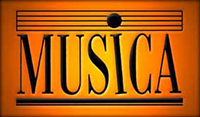MUSICA: A Great Benefit for ACDA Members
If you are searching for choral repertoire, and the fact is, we are indeed searching for choral repertoire all the time, your membership in the American Choral Directors Association offers you the entire Musica choral database to track down repertoire throughout the world.
Why would you use Musica rather than a Google search? Great question! Here are some answers I think you will find compelling:
- The Musica database references the score for the choral piece you want to find and does not drown in all other areas that you will encounter in a typical Google search;
- Music is a structured database, which means there exists a specific field for each type of information describing a score—composer, title, voicing, number of voices, key center, genre, style, form, instrumentation, liturgical use, and much more (for example, try searching in Google for Swiss choral scores for mixed voices in French, for a harvest festival, lasting about five minutes – Good luck with that! But in Musica, your search can be pinpointed with these criteria.)
- A Musica record includes all the information about the score into a single entity; you will find the bibliographic description, but also the multimedia links (video, audio clip, translations, pronunciation of the text (sound file by a native), image of the page, and more);
- The information is monitored constantly and checked and improved (in other words, it is trusted) by the Musica coordination team, which is a team of choral conductors and music librarians (in other words, this is a trusted site, avoiding the negative aspects of Google searches);
- The videos selected for the choral works sought are only the good performances, unlike Google and YouTube that mix the best with the worst;
- Musica offers “favorite pieces of the month” for additional exploration and interest;
- Musica offers an “auditorium” where you can browse through the vast compilation of all audio and video links;
- Musica allows you to interact with the data by using a Musica Wiki or Facebook page;
- Musica offers a list of important anniversaries for composers.
- Musica can be used to manage your choral holdings or your choir’s holdings without need of doing your own database, by benefitting from private fields to input for instance your location.
Musica comprises four databases that can be consulted separately: choral scores-172,000 records; choral composers-32,000 records; authors of texts-14,000 records; choral publishers-2,500 records. These databases are interlinked so that it is possible to navigate directly between them.
The database of scores comprises a series of fields yielding as many as 100 different types of information about the score, including composer, arranger, publisher, title, genre, form, difficulty, type of choir, language, musical period, instrumentation, etc.
Musica currently contains more than 300,000 multimedia links. The multimedia fields are designed to provide a fuller understanding of the piece: image of one page of the score, the text, its translation in several languages, a sound clip of a good interpretation and/or a video, a sound file of the correct pronunciation by a native speaker of the language, a midi file, and links to pages external of the project. By the end of 2016, the Musica database contained more than 172,000 records, making it the leading virtual library of choral music in which all possible information about a score is available.
Since 2011, Musica has concentrated on the development of features allowing full interactivity with the actors of choral music. The choral world is able to contribute actively to its development through online forms, allowing every composer, publisher, conductor, musicologist, or choral music lover to directly input new pieces or their favorites, if not referenced yet, or use the Musica Wiki to leave comments, additional information and reports of experiences with the music. This interaction is now possible whatever the computer operating system (PC, McIntosh, Android, Linux…).
Musica is now a benefit of membership in ACDA. From the ACDA.ORG webpage, click the Membership Resources pull-down menu. Musica is the bottom button listed. There, many above mentioned features are accessible through the link “View Full Musica Site”.
If you are coming at the ACDA National Conference in Minneapolis, there are two ways to learn much more on Musica. First, come by exhibit booth #343 anytime the exhibits are open, meet the staff, explore the database. Second, on Saturday, March 11 at 10 a.m. in the Convention Center room L100 A and B, Jean Sturm, creator and Executive Director of Musica will demonstrate the many uses and features of Musica, including its interactivity with the user and the ability to manage your own or your choir’s library. Until then, explore the database at http://acda.org/musica.asp.
Much of this article is a 2017 update of a blog by ACDA Executive Director, Tim Sharp (used with his permission), which appeared on the website of the 2016 ACDA Eastern Division Conference in Boston.
John Warren with Jean Sturm



Leave a Reply
You must be logged in to post a comment.